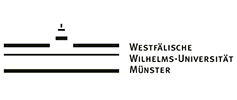Constitutionalized But Not Constitute: The Case of Right to Social Security in Indonesia
DOI:
https://doi.org/10.31078/consrev623Keywords:
Authoritarian Constitutionalism, Indonesia, Constitutional Court, Judicial Review, Right to Social Security, Social Economic RightsAbstract
Previous studies on the development of socio-economic rights in Indonesia heavily focus on the Constitutional Court’s decisions in upholding the rights. But there is still minimum study on the political economy behind the development of socio-economic rights in Indonesia. This article will analyze the development of socio-economic rights through the lenses of the right to social security. This article relies on two major theoretical frameworks to analyze the development of the right to social security in Indonesia. The first theoretical framework is the authoritarian constitutionalism in the economic sphere. The second theoretical framework in this article is Kathrine Young’s theory of the construction of socio-economic rights. This article postulates that the rights to social security has been constitutionalized but not constituted in Indonesia for several reasons. First, and foremost, the legacy of authoritarian constitutionalism that prioritizing economic growth over the fulfilment of social economic rights. The “growth” ideology has contributed to the discrepancy between the constitution and reality, in which the government merely considers protection of socio-economic rights as extra cost, which will hamper the growth of the economy. Second, the lack of philosophical and comparative analysis in the interpretation of rights to social security. Third, the transformation of the Court as a detached court in the enforcement of the rights to social security. The element of detachment is clearly seen in the Court’s too much deferral to the Executive and Legislative branches in defining the scope and meaning of the right to social security. Finally, the failure of social movement to create a new narrative on injustice and the importance of rights to social security.References
“15 Janji Duet SBY-Boediono [15 Promises of Duo SBY-Boediono].” Detik.com, July 4, 2009, available at https://news.detik.com/pemilu/1159103/15-janjiduet-sby-boediono.
Albertus, Michael and Victor Menaldo. “The Political Economy of Autocratic Constitutions.” In Constitutions in Authoritarian Regimes, edited by Tom Ginsburg and Alberto Simpser. New York: Cambridge University Press, 2014.
Chopra, Surabhi. “Legislating Safety Nets: Comparing Recent Social Protection Laws in Asia.” Indiana Journal of Global Legal Studies 22 (2015): 573, 611.
Cheston, Timothy.“Indonesia and the Quest for 7% Growth: Overpromise or Underperformance?” ATLAS of Economic Complexity -Center for International Economic Development at Harvard University. Available http:// atlas.cid.harvard.edu/stories/indonesia.
Davidson, Jamie. “Then and Now: Campaigns to Achieve Rice Self-Sufficiency in Indonesia.” Bijdragen tot de Taal-, Land- en Volkenkunde 174 (2018).
Dinna, Wisnu. “Governing Insecurity in Indonesia and the Philippines: The Politics of Social Protection Reform.” Working Paper for 2nd Joint Symposium KSEAS and CSEAS, Kyoto University Japan, October 27 – 29, 2011.
Farinacci-Fernós, Jorge M. “Looking Beyond the Positive-Negative Rights Distinction: Analyzing Constitutional Rights According to their Nature, Effect, and Reach.” Hasting Int’l and Comp Law Review 41, no. 1 (2018).
Hadiz, Vedi R. and Richard Robison. “The Political Economy of Oligarchy and the Reorganization of Power in Indonesia.” In Beyond Oligarchy: Wealth, Power and Contemporary Indonesian Politics, edited by Michael Ford and Thomas B. Pepinsky. Ithaca, New York: Southeast Asia Program, Cornell University, 2014.
Hendrianto, Stefanus. Law and Politics of Constitutional Court: Indonesian and the Search for Judicial Heroes. Milton: Routledge, 2018.
Hendrianto, Stefanus. “The Divergence of A Wandering Court: Socio-Economic Rights in the Indonesian Constitutional Court.” The Australian Journal of Asian Law (University of Melbourne)16, no. 2, Article 5 (2016).
Hosen, Nadirsyah. “Reform of the Indonesian Law in Post-Soeharto Era (1998-1999).” Ph.D. diss., the University of Wollongong.
ILO (International Labour Organization). Social Security for Social Justice and a Fair Globalization (ILC. 100/VI). Geneva: International Labour Office, 2011.
“Inilah Isi Pidato Kenegaraan Presiden SBY [President SBY’ State of Union Address].” BeritaSatu.com, August 16, 2012. Available at https://www.beritasatu.com/nasional/66461/inilah-isi-pidato-kenegaraan-presiden-sby.
Indrayana, Denny. Indonesian Constitutional Reform, 1999-2002. Jakarta: Kompas Book Publishing, 2008.
International Covenant on Economic, Social and Cultural Rights, Adopted by General Assembly resolution 2200A (XXI) of 16 December 1966.
Jung, Eunsook. “Campaigning for All Indonesians: The Politics of Healthcare in Indonesia.” Contemporary Southeast Asia 38, no. 3 (2016): 476 -94, 482.
Judicial Review of Constitutional Court Law, Decision No 007/PUU-III/2005 (The Constitutional Court of the Republic of Indonesia 2005).
Judicial Review of Constitutional Court Law, Decision No. 47/PUU-XIV/2016 (The Constitutional Court of the Republic of Indonesia 2016).
Kapiszewski, Diana, Gordon Silverstein and Robert A. Kagan. “Introduction.” In Consequential Courts: Judicial Roles in Global Perspectives, edited by Diana Kapiszweski, Gordon Silverstein & Robert A. Kagan. Cambridge Univ. Press, New York, 2013.
Kuncoro, Mudrajad, Tri Widodo and Ross McLeod. “Survey of Recent Developments.” Bulletin of Indonesian Economic Studies 45, no. 2 (2009).
Law No. 39 of 1999 on the Human Rights.
Lane, Max. “Amidst Indonesia’s Nationalist Atmospherics: The Changing Politics of Jokowi’s Economics.” ISEAS Perspective, no. 64 (2015).
Lee, Joo-Young. “Neoliberal Developmentalism in South Korea and the Unfulfilled Promised of Economic and Social Rights.” In Economic and Social Rights in a Neoliberal World, edited by Gillian Macnaughton & Diane F. Frey. Cambridge University Press, 2019.
Leijten, Ingrid. “The German Right to an Existenzminimum, Human Dignity, and the Possibility of Minimum Core Socioeconomic Rights Protection.”
German Law Journal 16, no. 1 (2015): 23.
Mallarangeng, Rizal. “Liberalizing New Order Indonesia: Ideas, Epistemic Community and Economic Policy Change, 1986 – 1992.” PhD diss., the Ohio State University, 2000.
Mallarangeng, Rizal. Mendobrak Sentralisme Ekonomi Indonesia [Breaking the Economic Centralism in Indonesia]. Jakarta: Kepustakaan Populer Gramedia, 2002.
Mietzner, Marcus. “Reinventing Asian Populism: Jokowi’s Rise, Democracy and Political Contestation in Indonesia.” East-West Center Policy Studies, no. 72 (2015).
Nardi Jr., Dominic. “Embedded Judicial Autonomy: How NGOs and Public Opinion Influence Indonesia’s Constitutional Court.” Michigan: Ph.D. Thesis-University of Michigan, 2018.
“Program Keluarga Harapan: Two Case Studies on Implementing the Indonesian Conditional Cash Transfer Program.” The Pro-Poor Planning and Budgeting Project, Working Paper No. 5, June 2008.
Prastyani, Ade. “Who’ll Pay for Indonesia’s National health insurance?” New Mandala, published February 28, 2019, https://www.newmandala.org/whollpay-for-indonesias-national-health-insurance.
“President Rebukes Minister, State Insurer over Health Insurance Deficit.” The Jakarta Post, Oct 17, 2018. https://www.thejakartapost.com/news/2018/10/17/president-rebukes-minister-state-insurer-over-health-insurance-deficit.html.
Robison, Richard. Indonesia: The Rise of Capital. North Sydney, NSW, Australia: Allen & Unwin, 1986).
Sumarto, Sudarno and Samuel Bazzi. “Social Protection in Indonesia: Past Experiences and Lessons for the Future.” MPRA Paper No. 57893, SMERU Research Institute, University of Muenchen, March 18, 2011.
Tani, Shotaro and Ismi Damayanti. “Indonesia Struggles to Pay for Huge Universal Health Care Program.” Nikkei Asian Review, (August 2019), available at https://asia.nikkei.com/Economy/Indonesia-struggles-to-pay-forhuge- universal-health-care-program.
“There should be No More Indonesians without Health Coverage: SBY.” The Jakarta Post, December 31, 2013. Available at https://www.thejakartapost.com/news/2013/12/31/there-should-be-no-more-indonesians-without-healthcoverage-sby.html.
The 1945 Constitution of the Republic of Indonesia.
The Jakarta Post. “Jokowi-Kalla Hawkish on Economic Policies.” May 21, 2014.
Available at https://www.thejakartapost.com/news/2014/05/21/jokowi-kallahawkish-economic-policies.html.
“The State Secretariat Summary on the President’s State of the Union Address.” available at https://www.setneg.go.id/baca/index/pidato_kenegaraan_presiden_dalam_sidang_bersama_dpd_dan_dpr. The Universal Declaration of Human Rights.
Townsend, Peter. “Social Security and Human Rights.” In Building Decent Societies: Rethinking the Role of Social Security in Development, edited by Peter Townsend. Basingstoke: Palgrave Macmillan, 2009.
Tushnet, Mark. “Authoritarian Constitutionalism.” Cornell Law Review 100, no. 2
(January 2015): 391, 396. https://scholarship.law.cornell.edu/cgi/viewcontent.cgi?article=4654&context=clr.
Tushnet, Mark. “Authoritarian Constitutionalism: Some Conceptual Issues.” In Constitutions in Authoritarian Regimes, edited by Tom Ginsburg and Alberto Simpser. New York: Cambridge University Press, 2014.
UN Economic and Social Council (ECOSOC), Committee on Economic, Social and Cultural Rights, Report on the Fifth Session, Annex III, UN Doc. E/1991/23 (1990) [“General Comment No.3”).
Vandawati, Zahry, Hilda Yunita Sabrie, Widhayani Dian dan Rizky Amalia.
“Aspek Hukum Kartu Indonesia Sehat, “The Legal Aspect of Indonesian Health Card.” Yuridika 31, no. 3 (September-December 2016).
Young, Katharine. Constituting Economic and Social Rights. Oxford: Oxford University Press, 2014.
Yusuf, Arief Anshory and Andy Sumner. “Multidimensional poverty in Indonesia: How Inclusive has Economic Growth been?” Working Paper No. 2017/09, ANU College of Asia & Pacific, June 2017.
Albertus, Michael and Victor Menaldo. “The Political Economy of Autocratic Constitutions.” In Constitutions in Authoritarian Regimes, edited by Tom Ginsburg and Alberto Simpser. New York: Cambridge University Press, 2014.
Chopra, Surabhi. “Legislating Safety Nets: Comparing Recent Social Protection Laws in Asia.” Indiana Journal of Global Legal Studies 22 (2015): 573, 611.
Cheston, Timothy.“Indonesia and the Quest for 7% Growth: Overpromise or Underperformance?” ATLAS of Economic Complexity -Center for International Economic Development at Harvard University. Available http:// atlas.cid.harvard.edu/stories/indonesia.
Davidson, Jamie. “Then and Now: Campaigns to Achieve Rice Self-Sufficiency in Indonesia.” Bijdragen tot de Taal-, Land- en Volkenkunde 174 (2018).
Dinna, Wisnu. “Governing Insecurity in Indonesia and the Philippines: The Politics of Social Protection Reform.” Working Paper for 2nd Joint Symposium KSEAS and CSEAS, Kyoto University Japan, October 27 – 29, 2011.
Farinacci-Fernós, Jorge M. “Looking Beyond the Positive-Negative Rights Distinction: Analyzing Constitutional Rights According to their Nature, Effect, and Reach.” Hasting Int’l and Comp Law Review 41, no. 1 (2018).
Hadiz, Vedi R. and Richard Robison. “The Political Economy of Oligarchy and the Reorganization of Power in Indonesia.” In Beyond Oligarchy: Wealth, Power and Contemporary Indonesian Politics, edited by Michael Ford and Thomas B. Pepinsky. Ithaca, New York: Southeast Asia Program, Cornell University, 2014.
Hendrianto, Stefanus. Law and Politics of Constitutional Court: Indonesian and the Search for Judicial Heroes. Milton: Routledge, 2018.
Hendrianto, Stefanus. “The Divergence of A Wandering Court: Socio-Economic Rights in the Indonesian Constitutional Court.” The Australian Journal of Asian Law (University of Melbourne)16, no. 2, Article 5 (2016).
Hosen, Nadirsyah. “Reform of the Indonesian Law in Post-Soeharto Era (1998-1999).” Ph.D. diss., the University of Wollongong.
ILO (International Labour Organization). Social Security for Social Justice and a Fair Globalization (ILC. 100/VI). Geneva: International Labour Office, 2011.
“Inilah Isi Pidato Kenegaraan Presiden SBY [President SBY’ State of Union Address].” BeritaSatu.com, August 16, 2012. Available at https://www.beritasatu.com/nasional/66461/inilah-isi-pidato-kenegaraan-presiden-sby.
Indrayana, Denny. Indonesian Constitutional Reform, 1999-2002. Jakarta: Kompas Book Publishing, 2008.
International Covenant on Economic, Social and Cultural Rights, Adopted by General Assembly resolution 2200A (XXI) of 16 December 1966.
Jung, Eunsook. “Campaigning for All Indonesians: The Politics of Healthcare in Indonesia.” Contemporary Southeast Asia 38, no. 3 (2016): 476 -94, 482.
Judicial Review of Constitutional Court Law, Decision No 007/PUU-III/2005 (The Constitutional Court of the Republic of Indonesia 2005).
Judicial Review of Constitutional Court Law, Decision No. 47/PUU-XIV/2016 (The Constitutional Court of the Republic of Indonesia 2016).
Kapiszewski, Diana, Gordon Silverstein and Robert A. Kagan. “Introduction.” In Consequential Courts: Judicial Roles in Global Perspectives, edited by Diana Kapiszweski, Gordon Silverstein & Robert A. Kagan. Cambridge Univ. Press, New York, 2013.
Kuncoro, Mudrajad, Tri Widodo and Ross McLeod. “Survey of Recent Developments.” Bulletin of Indonesian Economic Studies 45, no. 2 (2009).
Law No. 39 of 1999 on the Human Rights.
Lane, Max. “Amidst Indonesia’s Nationalist Atmospherics: The Changing Politics of Jokowi’s Economics.” ISEAS Perspective, no. 64 (2015).
Lee, Joo-Young. “Neoliberal Developmentalism in South Korea and the Unfulfilled Promised of Economic and Social Rights.” In Economic and Social Rights in a Neoliberal World, edited by Gillian Macnaughton & Diane F. Frey. Cambridge University Press, 2019.
Leijten, Ingrid. “The German Right to an Existenzminimum, Human Dignity, and the Possibility of Minimum Core Socioeconomic Rights Protection.”
German Law Journal 16, no. 1 (2015): 23.
Mallarangeng, Rizal. “Liberalizing New Order Indonesia: Ideas, Epistemic Community and Economic Policy Change, 1986 – 1992.” PhD diss., the Ohio State University, 2000.
Mallarangeng, Rizal. Mendobrak Sentralisme Ekonomi Indonesia [Breaking the Economic Centralism in Indonesia]. Jakarta: Kepustakaan Populer Gramedia, 2002.
Mietzner, Marcus. “Reinventing Asian Populism: Jokowi’s Rise, Democracy and Political Contestation in Indonesia.” East-West Center Policy Studies, no. 72 (2015).
Nardi Jr., Dominic. “Embedded Judicial Autonomy: How NGOs and Public Opinion Influence Indonesia’s Constitutional Court.” Michigan: Ph.D. Thesis-University of Michigan, 2018.
“Program Keluarga Harapan: Two Case Studies on Implementing the Indonesian Conditional Cash Transfer Program.” The Pro-Poor Planning and Budgeting Project, Working Paper No. 5, June 2008.
Prastyani, Ade. “Who’ll Pay for Indonesia’s National health insurance?” New Mandala, published February 28, 2019, https://www.newmandala.org/whollpay-for-indonesias-national-health-insurance.
“President Rebukes Minister, State Insurer over Health Insurance Deficit.” The Jakarta Post, Oct 17, 2018. https://www.thejakartapost.com/news/2018/10/17/president-rebukes-minister-state-insurer-over-health-insurance-deficit.html.
Robison, Richard. Indonesia: The Rise of Capital. North Sydney, NSW, Australia: Allen & Unwin, 1986).
Sumarto, Sudarno and Samuel Bazzi. “Social Protection in Indonesia: Past Experiences and Lessons for the Future.” MPRA Paper No. 57893, SMERU Research Institute, University of Muenchen, March 18, 2011.
Tani, Shotaro and Ismi Damayanti. “Indonesia Struggles to Pay for Huge Universal Health Care Program.” Nikkei Asian Review, (August 2019), available at https://asia.nikkei.com/Economy/Indonesia-struggles-to-pay-forhuge- universal-health-care-program.
“There should be No More Indonesians without Health Coverage: SBY.” The Jakarta Post, December 31, 2013. Available at https://www.thejakartapost.com/news/2013/12/31/there-should-be-no-more-indonesians-without-healthcoverage-sby.html.
The 1945 Constitution of the Republic of Indonesia.
The Jakarta Post. “Jokowi-Kalla Hawkish on Economic Policies.” May 21, 2014.
Available at https://www.thejakartapost.com/news/2014/05/21/jokowi-kallahawkish-economic-policies.html.
“The State Secretariat Summary on the President’s State of the Union Address.” available at https://www.setneg.go.id/baca/index/pidato_kenegaraan_presiden_dalam_sidang_bersama_dpd_dan_dpr. The Universal Declaration of Human Rights.
Townsend, Peter. “Social Security and Human Rights.” In Building Decent Societies: Rethinking the Role of Social Security in Development, edited by Peter Townsend. Basingstoke: Palgrave Macmillan, 2009.
Tushnet, Mark. “Authoritarian Constitutionalism.” Cornell Law Review 100, no. 2
(January 2015): 391, 396. https://scholarship.law.cornell.edu/cgi/viewcontent.cgi?article=4654&context=clr.
Tushnet, Mark. “Authoritarian Constitutionalism: Some Conceptual Issues.” In Constitutions in Authoritarian Regimes, edited by Tom Ginsburg and Alberto Simpser. New York: Cambridge University Press, 2014.
UN Economic and Social Council (ECOSOC), Committee on Economic, Social and Cultural Rights, Report on the Fifth Session, Annex III, UN Doc. E/1991/23 (1990) [“General Comment No.3”).
Vandawati, Zahry, Hilda Yunita Sabrie, Widhayani Dian dan Rizky Amalia.
“Aspek Hukum Kartu Indonesia Sehat, “The Legal Aspect of Indonesian Health Card.” Yuridika 31, no. 3 (September-December 2016).
Young, Katharine. Constituting Economic and Social Rights. Oxford: Oxford University Press, 2014.
Yusuf, Arief Anshory and Andy Sumner. “Multidimensional poverty in Indonesia: How Inclusive has Economic Growth been?” Working Paper No. 2017/09, ANU College of Asia & Pacific, June 2017.
Downloads
Published
2020-12-30
How to Cite
Hendrianto, S. (2020). Constitutionalized But Not Constitute: The Case of Right to Social Security in Indonesia. Constitutional Review, 6(2), 241–281. https://doi.org/10.31078/consrev623
Issue
Section
Articles
































































